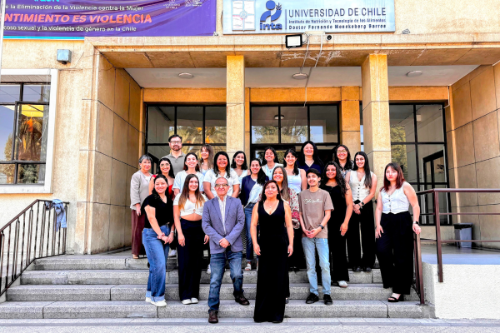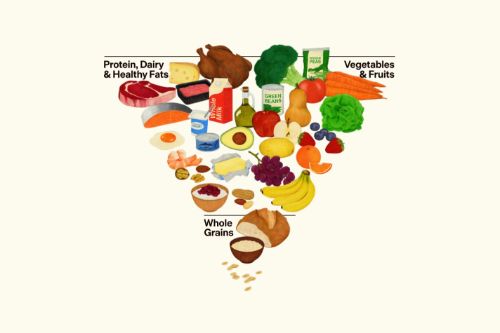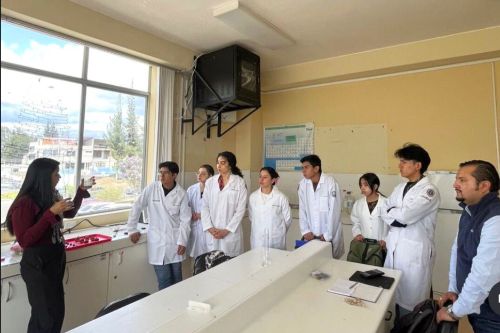The steady increase in noncommunicable diseases (NCDs) in Latin America, and particularly in Chile, has created an urgent need to develop accessible, effective, and culturally relevant solutions to promote healthy lifestyles among older adults. In this context, a multidisciplinary team of researchers designed and validated NeoMayor, a mobile health (mHealth) application that represents a milestone in digital health for healthy aging.
This app was developed thanks to the FONDEF project (ID21I10096), which culminated in the publication of the article “Design and Validation of Mobile Software to Promote Healthy Lifestyles and Brain Health in Older Adults: The NeoMayor Pilot Study” (DOI: 10.2196/71936) in the Journal of Medical Internet Research (Impact Factor 6.0). As an extension of this project, the team was recently granted a new FONDEF R&D project “NeoMayor, software to promote healthy lifestyles among older adults: Optimization and update” (ID25I10379), which aims to expand NeoMayor’s reach and improve its features. Carol San Martín, PhD in Biomedical Sciences and professor at the Institute of Nutrition and Food Technology (INTA) of the University of Chile, is a lead researcher in both projects.
“This project was created with and for older adults,” explains San Martín. “We held regular focus groups where we showed participants the app’s progress: colors, buttons, instructions, and so on. Everything was adapted to what they actually needed. That’s how we developed a friendly, understandable, and useful tool.”
Unlike other mHealth tools that tend to focus on a single area -nutrition, exercise, or medication- NeoMayor integrates multiple dimensions of well-being: physical activity, healthy eating, cognitive health, mental health, and quick access to emergency networks.
Each user inputs personal health data (weight, height, blood pressure, glucose levels, cholesterol, etc.) and receives a health assessment based on the Life’s Essential 8 metric. From this initial diagnosis, the app delivers personalized content -mainly in video and audio formats- to encourage sustainable lifestyle changes.
“For example, in the physical activity module, we recorded videos with a physiotherapist from our research team, adapted to different levels of mobility and health. It makes no sense for a very sedentary person to start with intense exercise. That’s why every recommendation is based on a prior evaluation and tailored to the user’s health status,” says Dr. San Martín.
NeoMayor also includes a memory module -developed with input from a neuropsychologist- and a mental health module that was specifically requested by the users themselves.
“It was a direct need raised by older adults: how to improve sleep, communicate better, and remain socially active. This content wasn’t initially planned but was a key contribution from the participatory process,” adds San Martín.
Positive and measurable results
The pilot study included 60 functionally independent and cognitively healthy older adults with some cardiovascular risk. After two months of app use, the results were remarkable:
- Significant reduction in systolic blood pressure (on average 10 mmHg)
- Decrease in waist circumference (7 cm)
- Improved lipid profile, with increased HDL cholesterol
- Positive changes in physical activity and dietary habits
- Improvements in functional indicators such as gait speed, grip strength, and SPPB test score
- The Life’s Essential 8 score—which evaluates overall cardiovascular health—increased from 64 ± 10 to 68 ± 11 points (p<0.001).
- And perhaps most importantly: participants actively used the application.

“They connected for about 6 minutes per day, twice a week. It may not sound like much, but it’s significant considering the average participant age was 71 and the app requires physical interaction, not just screen viewing,” notes San Martín.
As mentioned, the success of the initial FONDEF project enabled the team to secure additional funding to expand NeoMayor’s reach and functionality. The next step is a randomized, multicenter clinical trial with approximately 200 older adults, including users from rural areas with lower levels of digital literacy.
“We’re going to incorporate native phone sensors, like pedometers, so the app can track steps, speed, and provide real-time goals. This will gamify the experience a bit, boost engagement, and improve the accuracy and continuity of users’ physical monitoring,” explains San Martín. The study will be implemented in collaboration with Til Til Hospital, the Geriatric Hospital (INGER), and the Clinical Hospital of the University of Chile.
Additionally, design improvements are underway to make the app even easier to use, and new content is being developed with links to reliable external sources.
“We can’t include 200 videos in the app, so we’re working with external links to keep it lightweight and functional,” clarifies San Martín.
“Our greatest achievement was proving that an app co-designed with older adults can have a real impact on their health. We managed to reduce parameters that are often only treated with medication—like blood pressure and glucose levels—by promoting lifestyle changes,” concludes San Martín.
Keywords: mHealth; healthy aging; non-communicable diseases; brain health; dementia prevention
Reference: Gutiérrez M, Cabello V, SanMartín CD, Mauro J, Musa G, Torres M, San Martín C, Márquez C, Beltrán R, Rogers N, Salech F, Ponce D, Ampuero C, Varas P, Gamboa B, Cortés V, Vega C, Ruiz R, Velásquez J, Vergara R, Behrens MI, More J, Delgado C. Design and Validation of Mobile Software to Promote Healthy Lifestyles and Brain Health in Older Adults: The NeoMayor Pilot Study. JMIR Aging. 20/04/2025:71936






